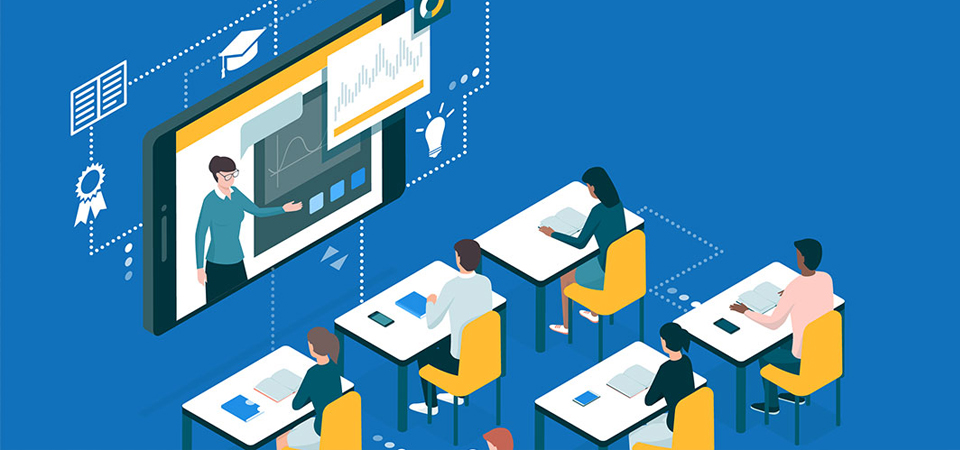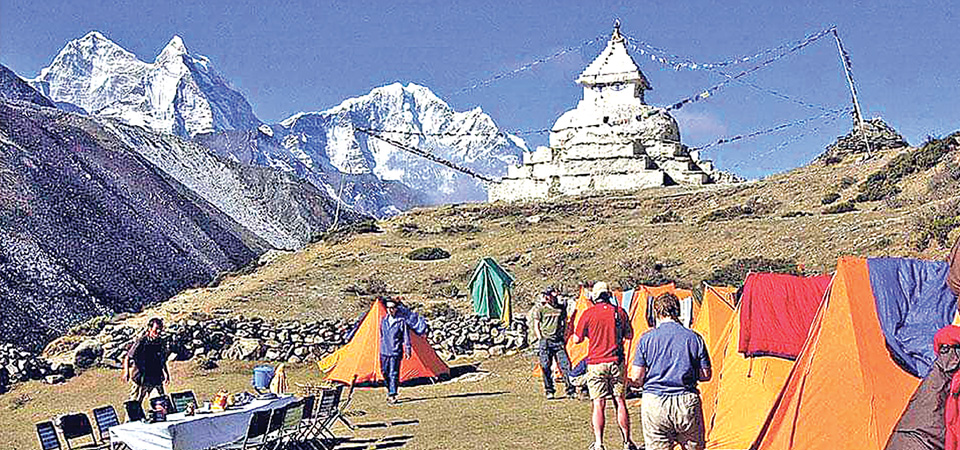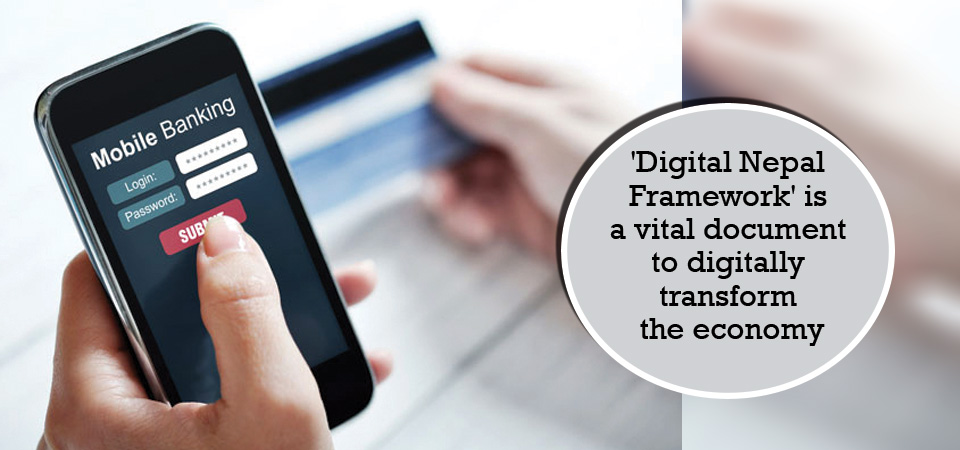Online Learning During COVID-19

Juhi Adhikari
Civic education instils civic knowledge in citizens and helps address the condition of their life through democratic values, institutions, and actors. It evolves civic disposition such as open-mindedness, intelligence, and political knowledge in citizens and helps adopt civic behaviour, attitude, orientation, and action, which are essential for our resilient democracy, human rights, justice, peace, and solidarity.
According to Dev Raj Dahal, civic education plays a crucial role in the development of the individual personality, society, and the nation. It is said that education is the light of life and educated skilled human resources are the backbone of the nation. In their absence, a country cannot progress.
Skilled Manpower
Skilled manpower built through quality education can help build a country. Education helps produce national heroes, disciplined citizens, industrious workforce, and intelligent human beings. Decades of traditional teaching methods in education have left a rigid and unforgiving environment for both students and teachers to learn and grow in.
Going back a year ago, I was going to college (which I resumed this month) and enjoying it in a traditional setting. I had friends to talk to, teachers to look into my classwork and extracurricular activities, all of which, however, went down the drain due to the lockdown.
The pandemic threw my daily routine away into chaos. The inability of the educational institutions to adjust the traditional methods in a new way was adamantly clear. For the first time, I was beginning to question everything I grew up doing. Six months of nothing affected my mental and physical health. Online classes were a breath of relief when it came as they brought hope for a new method of learning. It broke my monotonous routine and I was able to see all my friends together through my laptop screen. Teaching and education shifted to digital spaces from traditional classrooms. It was bearable but could not quite fill the gap in terms of quality and in-person experience.
We started online classes almost six months after the pandemic and lockdown started. It was a rollercoaster experience and came with its difficulties. Online classes started as a fun way to interact with teachers and move ahead with the courses so as not to delay our courses.
It was confusing for a few days as teachers started to navigate how to work online as they had no structure or prior experience with online methods. Teachers did not have the proper tools to teach effectively via the internet. As a student of management, I could not express the difficulty of having to learn graphs and slopes on MS Word with the teacher struggling more than I did.
We were still writing in copies, taking pictures, and converting them into pdfs to submit. We had minimal presentations and projects as Teachers had to finish off courses due to the pending examinations so we did not get to explore the subject matters. We were stuck in a loop of confusion and no understanding of the subject matter as no one had the proper training or guidelines for online schooling.
The difference between online and physical classes was clear but there was also so much missed potential. Online classes are just the beginning of digitalisation, which could be flexible as students can access classes from anywhere. It can be made fun and interactive through various social media and communication sites. It opens the idea of expanding the curriculum to every corner of the world as every student has access to the internet. It could help adopt new ways to do assignments, projects, and research.
Google Classroom provides easy classroom materials and reminds us of our deadlines for submissions. Zoom meetings had let us sit together, break out in rooms to discuss in smaller groups, present through screen sharing, and much more. But why limit to that! Teachers have endless sources of educational material and it doesn’t have to be boring old books.
They can share lectures from professors on youtube, fun methods to memorize from TikTok, suggest pages to follow on Instagram and Facebook. This digitization has also made us think of the current examination methods. A year-end or semester-end exam that determines the pass or failure of one semester. Due to the pandemic, many students had to lose 1 whole year as they were unable to give exams. Our education system could adopt from other countries and reevaluate the grading system as we move on to a new age of electronics.
Social Media Platforms
I was able to learn more from YouTube channels about economics, hear business ideas on TikTok, follow Instagram pages about current social issues, and use Facebook to engage an audience in the politics of the country. Even within the four corners of my room, I was able to explore the world and that says a lot about digitization. The world is changing, if we refuse to change with it, it’s not as simple as being stubborn, it’s being against the natural evolution of the digital world. We can learn from this digitization. Embrace it to the fullest and find ways to incorporate it into our daily life.
We can learn the concept of democracy, rights of the citizens, our duties, and social values through digital spaces and digital devices can help us to spread awareness among young people. We can use various tools to spread the importance and proper utilisation of democracy in the country. When I think of civic education, I remember my social studies teacher listing out the historical moments and constitution of our nation, asking us to memorize them. I knew it was important and we had to know our rights and the democratic system founded on the blood and sweat of our ancestors. Yet the general concept was always dull to me.
I was never able to give good attention to those topics. I now realise it should have been an integral part engraved in my everyday life. I regret not paying attention or asking questions, but I also regret that I was not proactive and eager to learn those things. I struggled to memorise dates when I should have been focusing on why certain events happened. Like how the constitution of 1951 declared education for all and the curriculum at that time was majorly focused on science and service as the nation needed manpower to rebuild itself. Education in the past was to shape the citizens in certain ways, in certain fields for development.
Many people nowadays have started online blogs, pages, and videos via social media platforms like youtube, Facebook, and TikTok to start educating people about the legal processes, constitutional laws, politics, and basic concepts of democracy. Directing students to such useful pages can be helpful as they are usually on such social media sites.
I have learned so much more in a way that keeps me interested and engaged with multiple resources. Schools/Colleges can also organise online workshops with qualified professors easily and on lower budgets due to the ease of online mediums. Having so many organisations working actively online, collaborating and working together has never been easier. Youths need to know the taste of freedom in online mediums and the knowledge of democracy to conduct them. We should provide a medium and platform for every one of them to exercise their rights and form decisions and choose wisely and be better people.
Youths need to experience the need for civic education and simulations can help to achieve that. Simulation-based education (SE) refers to the use of simulation software, tools, and serious games to enrich the teaching and learning processes. Thanks to the globalisation of e-learning practices, these educational experiences can be made available to students from different geographical regions and universities, which promote the development of international and inter-university cooperation in civic education.
Holistic Education Concept
Finally, the holistic education concept—the philosophy of educating the whole person, beyond core academics—is gaining steam in learning circles as schools struggle to improve student outcomes. Many organisations are realising that students need more than just a strong foundation in a core curriculum; they also need to be supported by a community and to develop a compassionate understanding of the world around them. This is a more realistic approach with digitisation and more appropriate to help youths such as myself engage and understand.
Civic education creates an avenue for young people like us to better prepare ourselves for the nation. It is crucial to make ideas of civic education transferred to the new generation. A traditional methodology has many limitations, whereas digital spaces have opened up new ways of imparting knowledge on civic education to tech-savvy generations.
We have come a long way and have got the fundamentals covered. Our education requires more than only medicine, physics, mathematics, and engineering. We need politics, economics, and a vast education on various other social values and citizenry. The past helps to shape the future and so civic education is necessary to understand why we do the things we do, why we need change and why we strive for more. The world is changing, if we refuse to change, it will go against the natural evolution of the digital world.
(Juhi is a management graduate)
Recent News

Do not make expressions casting dout on election: EC
14 Apr, 2022
CM Bhatta says may New Year 2079 BS inspire positive thinking
14 Apr, 2022
Three new cases, 44 recoveries in 24 hours
14 Apr, 2022
689 climbers of 84 teams so far acquire permits for climbing various peaks this spring season
14 Apr, 2022
How the rising cost of living crisis is impacting Nepal
14 Apr, 2022
US military confirms an interstellar meteor collided with Earth
14 Apr, 2022
Valneva Covid vaccine approved for use in UK
14 Apr, 2022
Chair Prachanda highlights need of unity among Maoist, Communist forces
14 Apr, 2022
Ranbir Kapoor and Alia Bhatt: Bollywood toasts star couple on wedding
14 Apr, 2022
President Bhandari confers decorations (Photo Feature)
14 Apr, 2022




